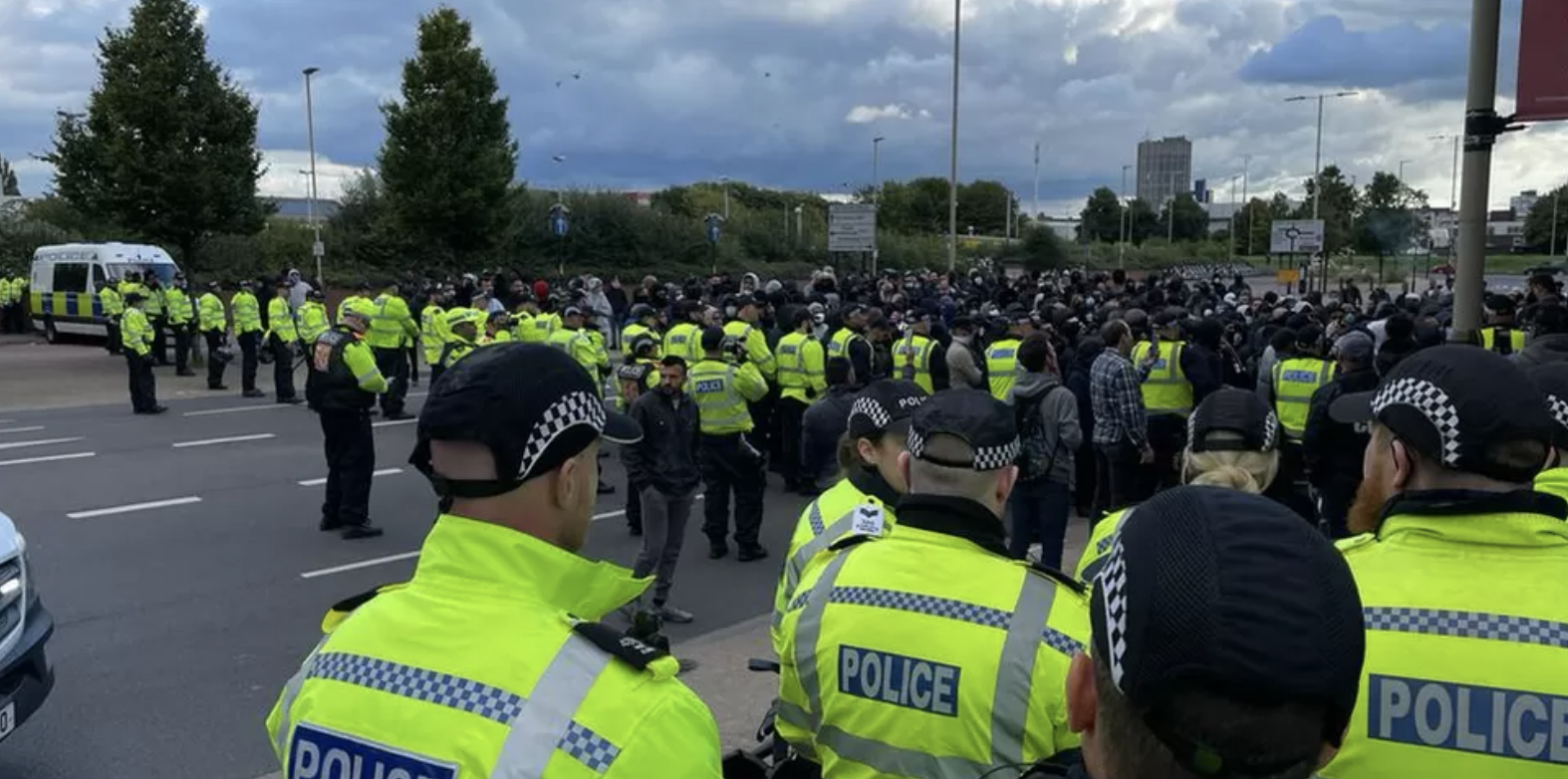Once regarded as the model example of a cohesive hyper-diverse locality in modern-day Britain, the city of Leicester is in danger of collapsing into a Hindutva-Islamist battleground in the East Midlands.
It has been reported by the Leicester Mercury that the recent escalation in community tensions started after the Asia Cup cricket match between India and Pakistan in the United Arab Emirates (UAE) on August 28. Before the weekend, it was reported that a total of twenty-seven people had been arrested. Another fifteen arrests have recently been made after further public disturbances in the Asian-dominant areas of East Leicester such as Belgrave.
Compared to many other multi-ethnic, religiously diverse parts of Britain, Leicester has been relatively successful in integrating and managing its diversity of communities. However, in recent times, ultra-religious identity politics and geopolitical grievances have gained a foothold in the city and subsequently undermined community cohesion.
Under the leadership of Jeremy Corbyn, Labour parachuted then-Islington borough councillor Claudia Webbe into the constituency of Leicester East — to the dismay of the local party and some in the city’s Gujarati-Hindu-communities. Webbe was part of an ‘emergency motion’ passed at the 2019 Labour Party conference which called for an “international intervention” in territorially-disputed Kashmir. Sundip Meghani, a former Labour councillor and parliamentary candidate who ran for selection in Leicester East, described Webbe’s selection as a “slap in the face for the Indian community”.
In response, organisations affiliated with the ruling Bharatiya Janata Party (BJP) in India — such as the Overseas Friends of BJP UK — called on British voters of Indian Hindu origin to turn their backs on Labour and offer their support to the Conservatives. With the rise of Hindu fundamentalism in India under Gujarat-born Prime Minister Narendra Modi, the interference of BJP-affiliated organisations has heightened the risk of divisive communalism shaping local politics in parts of inner-city Britain with diverse South Asian populations.
The arrival of subcontinental-style sectarianism in Leicester has seen an escalation in religiously-motivated public disorder. While Islamists have intimidated Hindus, vandalised a mandir and destroyed saffron flags of religious significance, pro-Hindutva marches have taken place through Leicester’s Muslim-dominant neighbourhoods with the chanting of ‘Jai Shri Ram’. Meaning ‘Glory to Lord Rama’, it is a religio-political slogan which has increasingly been employed in India for the perpetration of communal violence against the country’s non-Hindu minorities.
Britain remains one of the most successful examples of a multi-ethnic democracy in the modern world. Indeed, Her Majesty Queen Elizabeth II’s inclusive seventy-year reign stressed the commonalities which cut across our different religious communities. But recent events in Leicester show what can happen if interfaith relations are neglected by political and social institutions who should prioritise community relations over identitarian opportunism.
Leicester was once viewed by social-cohesion experts as the jewel in Britain’s diversity crown. But it is now becoming an example of how foreign-inspired sectarianism and religious extremism can take root in diverse parts of the country where there is a clear absence of effective socio-political leadership.











Join the discussion
Join like minded readers that support our journalism by becoming a paid subscriber
To join the discussion in the comments, become a paid subscriber.
Join like minded readers that support our journalism, read unlimited articles and enjoy other subscriber-only benefits.
Subscribe